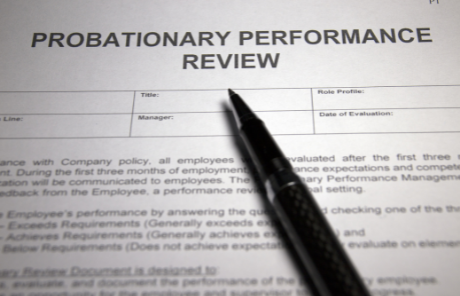The 5 Signs of a Great Law Firm
- December 6, 2022
Legal candidates are in an excellent position right now. With skill shortages plaguing the industry, there are more opportunities to move to great roles and companies than ever before. Moreover, you have more freedom about how you choose to work, with remote and hybrid roles emerging everywhere.
However, just because you have many options doesn’t mean defining the ideal firm to join is easy. Countless factors can influence whether a business is a good fit for you and your skills. Fail to consider them carefully, and you could end up in a role that doesn’t suit you.
Researching potential employers and the law firms you’re considering joining helps ensure you take the right next step in your career plan. Here’s how you can get started.
Before You Start Your Job Search
Preparation is key when searching for any new role. Rather than simply browsing endless job descriptions in search of something that mentions your qualifications, you should go on the journey with a clear action plan.
Start by defining exactly what you want as a candidate. What kind of career path are you working towards? Is there a specific role or certain duties within a role you’re most drawn towards? Are you looking for a firm that can help you work your way up through the ranks to a leadership position, or are you ready to start a management job immediately?
Working with a legal recruitment agency can be an excellent way to improve your chances of creating an effective plan. Your legal recruiter can discuss your career goals and help you define what you should be looking for in terms of benefits, remuneration, culture and more.
What’s more, once you’ve defined your plan with your recruiter, they’ll be able to position you in front of the right law firms, boosting your chances of the best job offer.
The 5 Signs of an Amazing Law Firm
With your career plan in hand, you’ll be able to start sorting your employment options with more focus. Following the Great Resignation, many law firms are currently searching for the top legal talent to stay ahead of the competition. Here are the signs to look for when narrowing your options.
1. Shared Values
Most of today’s employees are looking for more than just a good salary from their employer. They also want meaningful work which resonates with their values. Around 42% of employees say they think it’s important for an employer to be diverse, inclusive, and equitable, according to a recent Gallup survey. A further 43% of candidates say they’re attracted to a new job based on meaningful work.
Take the time to research a law firm’s core mission statement and its vision for the future. Find what it’s aiming towards, what kind of goals it’s setting, and how every team member plays a part. Researching the firm will help you to determine whether it’s focused on values similar to your own, such as innovation or diversity.
You can also read reviews and testimonials from previous employees on places like Glassdoor and speak to ourselves as established recruiting experts in the field about the inner workings of a firm and general reputation.
2. Strong Company Culture
46% of job seekers say company culture is important when deciding where they should work. A further 86% of candidates also say they actively avoid a company with a bad reputation. A company’s culture refers to everything from its approach to work to how it treats its employees.
For instance, you might find yourself drawn towards a firm with a strong wellness initiative designed to preserve team members’ mental and physical well-being. Alternatively, you may be more focused on a collaborative company culture, where everyone has a chance to contribute to the growth of the firm.
When seeking out good company culture, it’s worth looking for one with a strong sense of teamwork where employees are not only allowed but also encouraged to give their own input regarding important changes or potential challenges. You want to ensure that your skills and your input will be valued and your voice heard, especially when it matters. Ensuring that there is evidence you’ll be appreciated in your role and rewarded for a job well done is also something to keep an eye out for Look out for any stories published online or on the firm’s own website about rewards given to high-performing team members or those that demonstrate the business’ values.
3. Opportunities for Growth
While there’s always a chance you may need to move between law firms and roles to reach your career goals, every firm you work with should contribute to your growth. Having plenty of opportunities to learn sector-focused and transferable skills will ensure you can continue expanding your knowledge over time.Look for evidence that the firm in question is willing to train you on using new technologies and strategies as they emerge within your industry. It’s also worth discovering whether there’s room for lateral movement in your organisation as your expertise increases.
Find out whether team members are regularly offered promotions and opportunities to take on new challenges. This shows potential for a long future with the firm and can give you a better sense of the stability and security your role can offer.
4. Excellent Benefits
While good remuneration is important for anyone looking for the ideal job, it’s important to think beyond the salary. The benefits offered by a firm give you an insight into what you can look forward to if you decide to join the team.
In today’s skill-short marketplace, many employers are beginning to offer a wider range of benefits, from flexible work schedules to four-day working weeks and equity options. If you’re looking for the opportunity to work in a hybrid or remote environment (around 50% of U.K. employees), it’s important to check if the firm can offer this.
Usually, you’ll be able to learn more about the benefits an employer can offer by checking the job description, visiting the organisation’s “Careers” page on its website, and speaking to your recruiter.
5. Fantastic Leadership
Excellent leadership and good employee retention often go hand-in-hand for most businesses and firms. This is because legal employees rely on their leaders to provide motivation, support, and guidance. If you know the leadership team in your chosen firm is innovative, emotionally intelligent, and transparent, you’re more likely to feel comfortable in your role.
A good way to learn about a firm’s leadership practices is to check its website for stories about group accomplishments and business growth. You can also read the bio for the leaders of your potential team on the “About Us” page, and it may be you take this a step further by connecting with them on LinkedIn and build your professional network at the same time. Asking for an opportunity to speak to the people you’re going to be working with during the interview stage is also a good way to get a good idea of how they communicate and their general work ethic.
In short, the current market conditions mean that there is world of opportunity at the moment for ambitious legal professionals looking for a new role in line with their ambitions and career development. The potential downside of this however is the amount of choice and ‘golden opportunities’ make navigating the market difficult and time-consuming – especially for those already in a full-time job.
Trying to carve out some time to do your research however is essential, and creating somewhat of a checklist like this which allows you to assess the signs of a great law firm (and therefore, opportunity) will help to direct how you progress through to application stage.
Engaging with a legal recruiter can pay dividends here – not only in helping to understand the market and exclusive opportunities, but to talk candidly and confidentially about the Law Firms themselves in order to get your tick list completed and giving you a holistic view of what those crucial next steps look like.
About Clayton Legal
Clayton Legal has been partnering with law firms across the country since 1999 and during that time has built up an enviable reputation for trust and reliability. We have made over 5,000 placements from partners to legal executives, solicitors to paralegals and legal IT personnel to practice managers.
Click here to speak to one of our experienced Legal specialists or call 01772 259121 for more information on how our exceptional recruitment experience can help your career aspirations.












